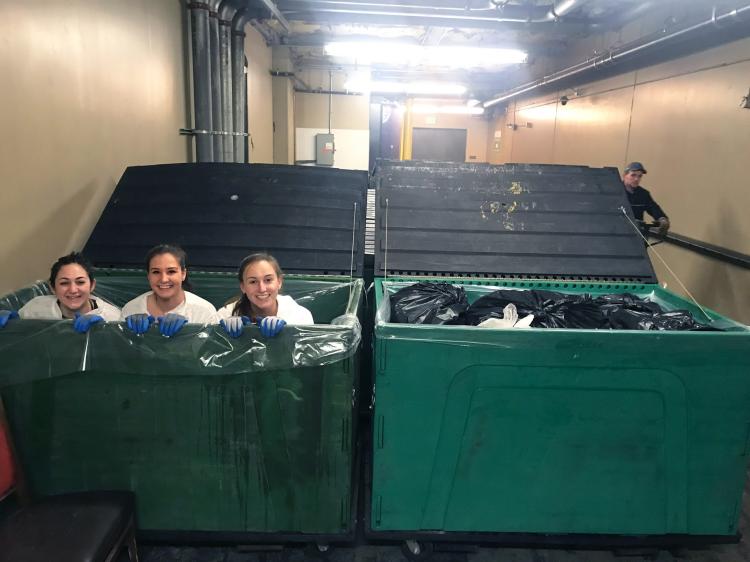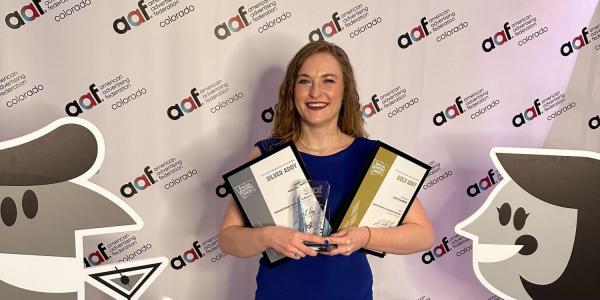Three CU Boulder students in the Masters of the Environment (MENV) graduate program teamed up with Vail Resorts Inc. to help the industry leader reach its commitment to send no waste to the landfill by 2030.
In 2017, Vail Resorts announced its Commitment to Zero, a pledge to reach a zero net operating footprint by 2030, which includes three pillars: zero net emissions, zero waste to landfill and zero net operating impact on forests and habitat.



Brielle Corry, Callyn Gonzalez and Nina Waysdorf, graduate students in the MENV program, conducted waste audits at Vail and at Breckenridge Resort to calculate each resort’s potential rate of diversion from the landfill. Their yearlong capstone project focused on implementing zero-waste procedures at the two mountains for Vail Resorts’ Zero Waste to Landfill by 2030 commitment.
“Through this project, we learned a lot about end-of-life-cycle for a lot of the products and materials they use and how best to work with the available facilities,” Gonzalez said. “In meeting this goal, nothing will go to the landfill. Reduction needs to be the first step, and from there, everything will be recycled or composted."
MENV is an interdisciplinary, applications-focused professional graduate degree. In 2017, a new specialization in sustainable food systems was launched.
“Rather than just looking at it from an agricultural sciences standpoint like most colleges,” said Myles Maland, assistant director for recruitment and external relations for MENV, “We focus on a holistic, 360-degree view of the food system and how we can make substantive improvements to the whole food system.”
During the one-year study, the MENV students sorted more than 870 pounds of waste from five mountain restaurants at Breckenridge and 2,350 pounds from seven mountain restaurants at Vail. The waste was separated into three categories: landfill, recycling and compost. Conducting these waste audits allowed for a better understanding of the waste stream, potential barriers to reducing waste at the two mountain resorts, and the best next steps for getting to zero waste.
The students worked with the Vail Resorts environmental management team, procurement team, and Vail Mountain and Breckenridge Resort food and beverage management to create a series of goals and documents. These included writing a procurement guide to help transition landfill-bound items out of the waste stream, a Zero Waste Training Guide that managers can use to train seasonal staff, and a formal report of the students’ completed waste audits.
“We developed a procurement guide to help Vail Resorts avoid items that can’t be recycled or composted, like ketchup packets and toothpicks with foil ends,” Gonzalez said. “I feel like we made a lot of good suggestions for moving forward. Waste in general is a high priority for the company, so we were happy to be part of that commitment to no waste going to landfills.”
Before the final zero-waste diversion plan becomes a reality, the resorts will have to make infrastructure changes, improve training, streamline waste management processes and implement a new procurement strategy.
While companywide logistics still need to be managed, the waste diversion rates suggest Vail Resorts will reach its interim goal of 50 percent diversion by the end of 2020 and its zero-waste goal by 2030.
“Through this project I’ve become more interested in corporate sustainability, specifically with a food company,” said Gonzalez, who is specializing in sustainable food systems through the MENV program. “I’ve learned more about the food system, and I’m really interested in the complexities that influence sustainability on a larger scale, particularly with food.”



